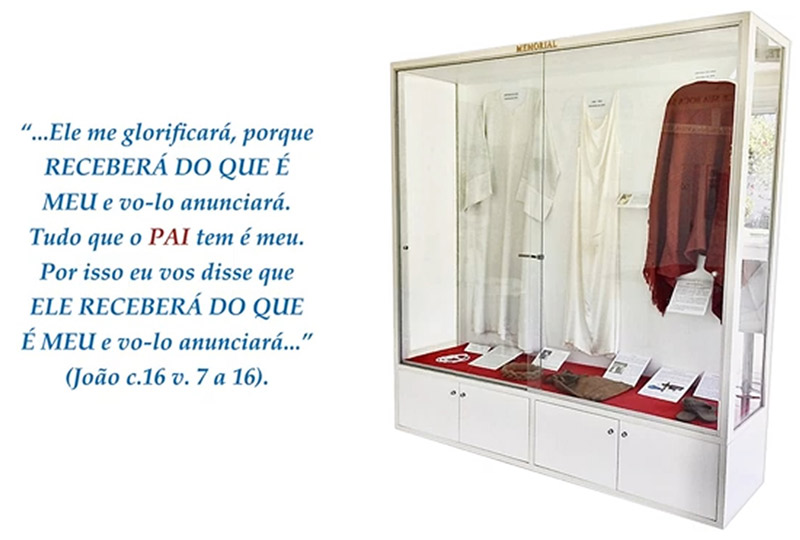So said INRI CRISTO:
“When I was called Jesus, I told Peter he should forgive even seventy times seven (Matthew c.18 v.21 and 22), but I did not tell him to receive into his intimacy the enemies, the conspirators, the traitors, the evildoers… who he had forgiven. Forgive, yes, but wearing the garment of incautious, no!
Imagine, my children, that you have a maid working at your house for many years and, with time, gained so much confidence so as to be part of the family. But one day she meets a man who ignores the advantage of being honest and falls in love for this tramp, who would encourage her to rob your house. The maid, induced to betrayal, becomes a thief and waits for the right moment to rob all money, jewels, finally, all economies existing in the house. At the time of your arrival, you do not find her and, realizing the robbery, denounces her to the Police; after many fruitless diligences, they give up finding her, thus without discovering where the thief maid is.
The delinquent man, after achieving his intention, in possession of the result of robbery, gets rid of her; and too late she figures out that she had only served as a step for him to tread on and achieve his delinquent purposes. She comes back crying, repented, prostrates at your feet, begs for forgiveness and that you accept her back, swearing will never fall again in the same mistake. Now I ask you, my children: even remembering her crime and the bitterness of betrayal you tasted when she fled, you will forgive her to be in harmony with the divine law, but would you accept back to your house the thief maid that, betraying your trust, had robbed you? Only if you were hypocrite or cretin would have an affirmative answer, because if she went back to live with you again would wait for a new attempt of betraying. Remember, my children: forgiveness does not imply restoration of trust, in other words, it does not imply living together again, neither restoring spontaneous relation.
Each case is one case. In order to exist a new approach after the sin, when the delinquent is repent of his crime, it is necessary to observe if the delinquency was made only by negligence, by carelessness or if it was premeditated with malevolent intention. If the penitent made it by mistake, he may repent and avoid doing it again. However, if it was premeditated he does not deserve a vow of trust, as in case of new approach would look out for the time to take the next lunge, whose damage would be even bigger; and besides the damage suffered, the victim would be repented for the rebinding and would lament, exclaiming: “Ingratitude! Ingratitude! I forgave and accepted her back in my house but was betrayed again!” So he would lose trust in everyone and could commit injustice to honest and well-intentioned people.
My FATHER, LORD and GOD said that I must forgive at the same time all those who conspire against the kingdom of GOD so as to allow mother nature execute the divine revenge, but I must not receive in the intimacy of His house the conspirers, the traitors, the evildoers… finally, the obstinate delinquents. And so too shall human beings, I reiterate once more, forgive the offenders to let divine justice be made. However, forgiveness does not mean rebinding relation with them”.











